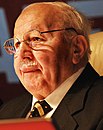| |||||||||||||||||||||||||||||||||||||||||||||||||||||||||||||||||||||||||||
All 450 seats in the Grand National Assembly 226 seats needed for a majority | |||||||||||||||||||||||||||||||||||||||||||||||||||||||||||||||||||||||||||
|---|---|---|---|---|---|---|---|---|---|---|---|---|---|---|---|---|---|---|---|---|---|---|---|---|---|---|---|---|---|---|---|---|---|---|---|---|---|---|---|---|---|---|---|---|---|---|---|---|---|---|---|---|---|---|---|---|---|---|---|---|---|---|---|---|---|---|---|---|---|---|---|---|---|---|---|
| Turnout | 83.92% ( | ||||||||||||||||||||||||||||||||||||||||||||||||||||||||||||||||||||||||||
| |||||||||||||||||||||||||||||||||||||||||||||||||||||||||||||||||||||||||||
 | |||||||||||||||||||||||||||||||||||||||||||||||||||||||||||||||||||||||||||
| |||||||||||||||||||||||||||||||||||||||||||||||||||||||||||||||||||||||||||
General elections were held in Turkey on 20 October 1991, to elect members to the 19th Grand National Assembly. It was the first by the ruling Motherland Party to be contested without its founding leader, Turgut Özal, who had become Turkish president two years previously. The result was a swing against Özal's former party in favour of its fierce centre-right rival, the True Path Party led by Süleyman Demirel. The vote saw two additional parties cross the 10 percent barrier to enter parliament. Necmettin Erbakan and his Welfare Party saw a party of religious background returned for the first time in 14 years. Welfare had a greatly increased share of the vote and took several key provinces, including Istanbul in 1994 local elections. Bülent Ecevit's Democratic Left Party also scraped through to win seven seats. Voter turnout was 83.9%.[1]
Background
[edit]The diversification of the communication tools in the 1980s and 1990s affected political campaigns. One feature that distinguished the 1991 elections from previous ones was the presence of private television channels and the ability of parties to advertise on television.[2]
An electoral alliance called the "holy alliance" was formed by the Welfare Party, Nationalist Task Party and Reformist Democracy Party to contest the elections.[3]
The pro-Kurdish People's Labour Party (HEP) contested the elections on the Social Democratic Populist Party (SHP) list.[4]
Results
[edit] | |||||
|---|---|---|---|---|---|
| Party | Votes | % | Seats | +/– | |
| True Path Party | 6,600,726 | 27.03 | 178 | +119 | |
| Motherland Party | 5,862,623 | 24.01 | 115 | –177 | |
| Social Democratic Populist Party | 5,066,571 | 20.75 | 88 | –11 | |
| Welfare Party | 4,121,355 | 16.88 | 62 | +62 | |
| Democratic Left Party | 2,624,301 | 10.75 | 7 | +7 | |
| Socialist Party | 108,369 | 0.44 | 0 | New | |
| Independents | 32,721 | 0.13 | 0 | 0 | |
| Total | 24,416,666 | 100.00 | 450 | 0 | |
| Valid votes | 24,416,666 | 97.06 | |||
| Invalid/blank votes | 740,423 | 2.94 | |||
| Total votes | 25,157,089 | 100.00 | |||
| Registered voters/turnout | 29,979,123 | 83.92 | |||
| Source: Nohlen et al. | |||||
References
[edit]- ^ Dieter Nohlen, Florian Grotz & Christof Hartmann (2001) Elections in Asia: A data handbook, Volume I, p258 ISBN 0-19-924958-X
- ^ Uzunsoy, Mert (24 January 2023). "Haritalarla Seçimler: 1991 Genel Seçimleri". Türkiye Raporu (in Turkish). Retrieved 12 May 2023.
- ^ Akgun, Birol (March 2002). "Twins or Enemies: Comparing Nationalist and Islamist Traditions in Turkish Politics" (PDF). Middle East Review of International Affairs. 6 (1).
- ^ Bozarslan, Mahmut (20 March 2021). "HEP'ten HDP'ye Kapatılan Kürt Partileri". Amerika'nin Sesi | Voice of America - Turkish (in Turkish). Retrieved 12 May 2023.




